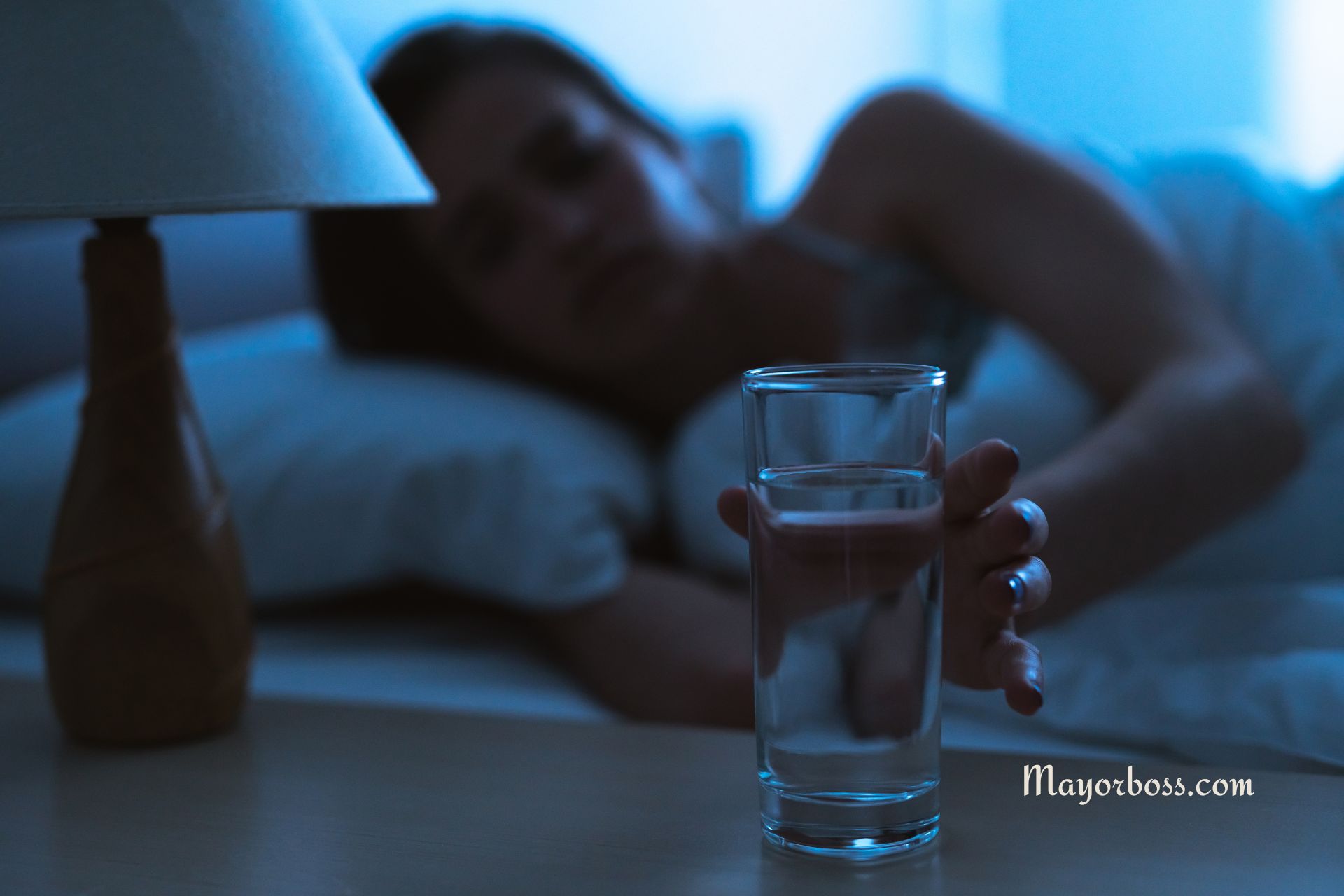Have A Glass of Water Next To Your Bed At Night
Staying hydrated is crucial for your body to function at its best. Having a glass or water bottle near your bed offers the convenience of quenching your thirst throughout the night. But before making this a regular habit, it’s important to weigh the potential benefits and drawbacks.

Potential Benefits Of Having A Glass Water Next To Your Bed At Night
- Convenience: Easy access to water helps you stay hydrated without disrupting your sleep to get a drink.
- Nighttime Thirst: If you often wake up thirsty, having water readily available can help. This is especially helpful for those with medical conditions that increase thirst.
- Promotes better sleep: Some research suggests that dehydration can contribute to disrupted sleep. If you occasionally wake up thirsty during the night, bedside water helps you fall back asleep quickly.
- Alleviate Dry Mouth: Water can counteract dry mouth, a common side effect of certain medications or conditions.
- Oral health boost: A quick rinse with water after waking can dislodge food particles from the night before and temporarily freshen your breath.
Potential Drawbacks
- Hygiene: Leaving an open glass of water overnight allows dust, debris, or even insects to contaminate it.
- Sleep Disruptions: If you are prone to nighttime bathroom trips, constant water intake might disrupt your sleep patterns.
- Water Quality Changes: Exposure to air can alter the taste and pH level of water, potentially making it less palatable.
Best Practices: Water by Your Bedside
If you decide the benefits outweigh the risks, here are some tips for keeping water by your bedside safely:
- Use a Covered Container: Opt for a water bottle or glass with a lid to minimize contamination.
- Choose the Right Material: Glass or stainless steel are good options as they won’t leach chemicals into the water like some plastics might.
- Clean Regularly: Wash your container daily to prevent germ buildup.
- Fresh Water: Replace the water each morning; don’t top up the existing water.
- Monitor Your Sleep: If you notice increased nighttime bathroom trips disrupting your sleep, reconsider having water by your bedside.
Alternatives to Water at Night
- Hydrate Throughout the Day: Focus on proper hydration during the day to minimize nighttime thirst.
- Humidifier: A humidifier can help combat dry air, reducing the need to drink as much at night.
- Mouth Rinse: Rinsing with a mouthwash before bed can help alleviate dry mouth.
Frequently Asked Questions
Q: Is it okay to drink water that’s been sitting out overnight? A: While generally safe, the taste and hygiene of the water might be compromised. It’s best to use fresh water each night.
Q: Does putting a glass of water under your bed have any benefits? A: Some beliefs suggest this practice absorbs negative energy, but there’s no scientific evidence to support this.
Q: Can drinking water before bed help with weight loss? A: There’s little evidence that drinking water directly leads to weight loss. However, staying hydrated is important for overall health and well-being.
In Conclusion
The decision to keep water next to your bed is a personal one. Consider the potential benefits, drawbacks, and your individual needs. If you opt for it, maintain good hygiene practices to ensure the water remains clean and safe to drink. Remember, proper hydration is vital, but you can achieve it through various means throughout the day as well as at night.
